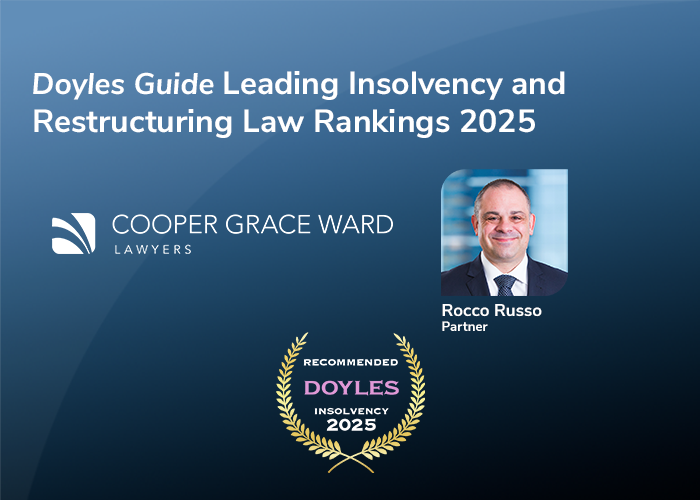COVID-19 has restricted international travel and many Australian citizens have returned to Australia while the world responds to the pandemic.
This raises some questions about whether a foreign incorporated company, which was not an Australian tax resident, is now an Australian tax resident because of changes in the way it operates.
When will a foreign incorporated company be an Australian tax resident?
A foreign incorporated company is an Australian tax resident under the domestic law in Australia if it carries on business in Australia and has either:
- its central management and control in Australia
- its voting power controlled by shareholders who are residents of Australia.
Following the High Court decision in Bywater Investments, the ATO released a new public ruling on the central management and control test of residency, TR 2018/5. At paragraph 8, the ATO considers the question ‘Does a company carry on business in Australia?’:
8. It is not necessary for any part of the actual trading or investment operations of the business of the company to take place in Australia. This is because the central management and control of a business is factually part of carrying on that business. A company carrying on business does so both where its trading and investment activities take place, and where the central management and control of those activities occurs.
The ATO concludes in TR 2018/5 that the place of ‘central management and control’ is where high-level decisions are made as a matter of fact and substance.
How does COVID-19 affect a company’s residency for tax purposes?
In PCG 2018/9, the ATO sets out practical guidance to assist advisers and companies apply TR 2018/5.
Board minutes are the starting point for determining who exercises a company’s central management and control and where it is exercised. PCG 2018/9 provides that where board meetings happen electronically – which is more common in a COVID-19 world – the relevant consideration is the location of the participants who are contributing to the high-level decisions, rather than the location of the electronic facilities.
Based on that guidance, there is a risk that a foreign incorporated company (that is not an Australian tax resident) would be an Australian tax resident if Australian citizens contribute to the high-level decisions of the company and are making those decisions in Australia after returning to Australia before the bans on international travel were put in place.
The ATO has published its view that foreign incorporated companies that are not Australian tax residents will not be Australian tax residents just because they have temporarily suspended their normal board meeting practices because of international travel bans or restrictions or the board has decided to stop international travel as a result of COVID-19.
The ATO has said that, absent of any other factors, a foreign incorporated company that is not an Australian tax resident will not be an Australian tax resident just because the company has suspended its usual board practices.
This is helpful guidance while there are official restrictions caused by COVID-19. However, the question will be: what happens after official restrictions are lifted, but companies continue to use electronically convened board meetings? At what point will a company’s central management and control migrate to Australia because of the location of its directors?
Does the foreign company have a permanent establishment in Australia?
A number of employees of foreign incorporated companies that are not Australian tax residents may also now work in Australia – this raises questions about whether that company now has a permanent establishment in Australia.
The ATO has said that they will not apply compliance resources where companies:
- did not have a permanent establishment in Australia before coronavirus; and
- have employees located in Australia only because they have been temporarily relocated or restricted in their travel because of coronavirus.
A company affected by coronavirus will not have an Australian permanent establishment if:
- the company did not have an Australian permanent establishment before the impacts of coronavirus
- there are no other changes in the company’s circumstances
- the ‘unplanned presence’ of the company’s employees in Australia is a short-term result because the employees have temporarily relocated or are restricted in travelling due to coronavirus.
Checking the double tax agreement and multilateral instrument
The domestic law in Australia may also be affected by a double tax agreement.
The residency article in the double tax agreement generally contains a ‘tie-breaker’ provision – which has the effect of deeming the company to be a tax resident of only one country.
For companies, the residency tie-breaker provision is generally where the company’s ‘place of effective management is situated’.
Unlike ‘central management and control’, ‘place of effective management’ refers to where ‘key management and commercial decisions that are necessary for the conduct of the entity’s business as a whole are in substance made’.
The multilateral instrument (MLI) is a multilateral tax treaty that effectively allows countries to amend their bilateral tax treaties without having to go through the long process of renegotiating the existing treaty. This is done by allowing countries to opt into various provisions.
Australia’s double tax agreements are not automatically affected by the MLI. Both countries have to agree to the MLI applying.
In some cases under MLI, the ‘place of effective management’ test is replaced with a test that involves the two countries determining, by mutual agreement, where the company is deemed to be a resident, having regard to its place of effective management, the place where it is incorporated or otherwise constituted and other relevant factors.
The consequences of getting a company’s residency status wrong can be significant.




